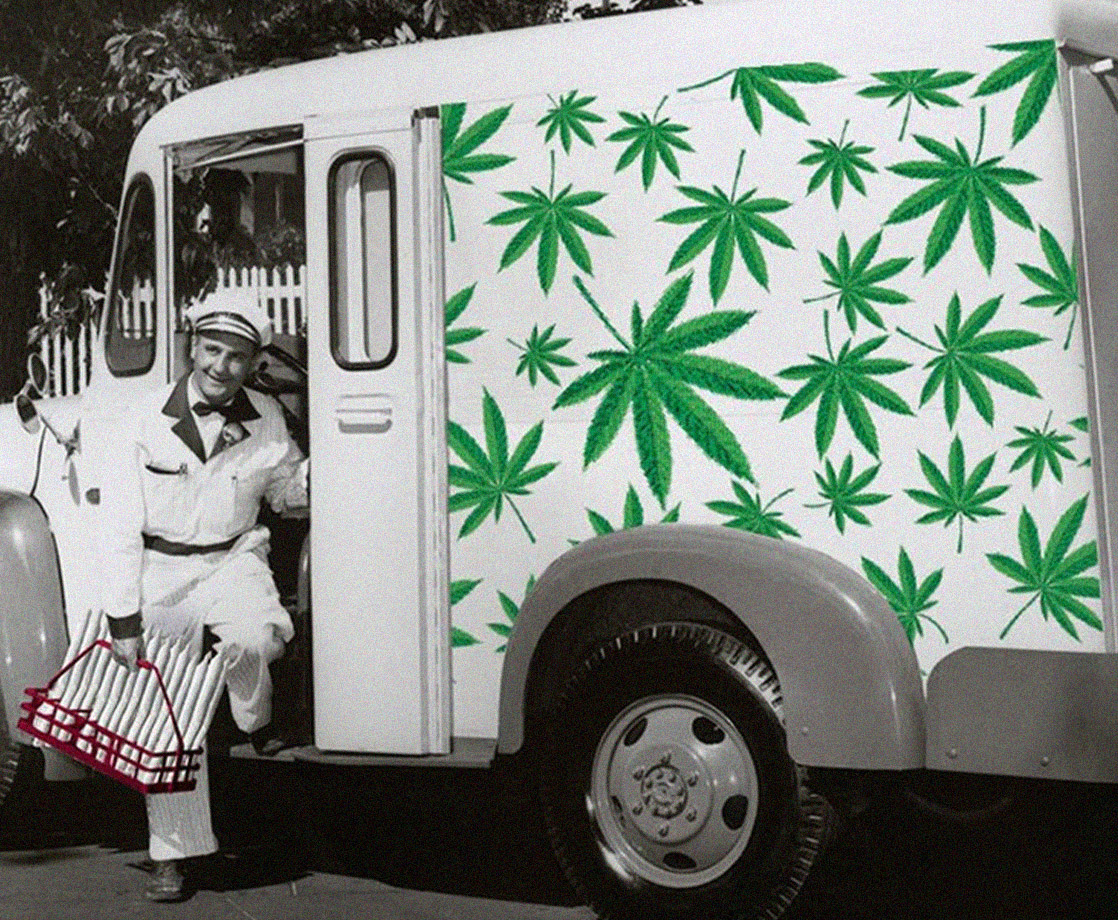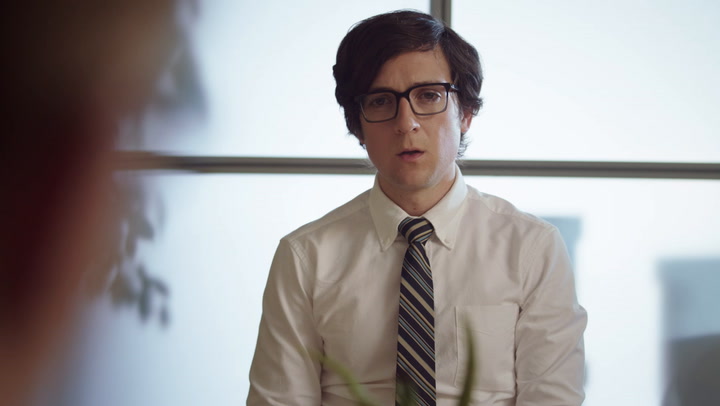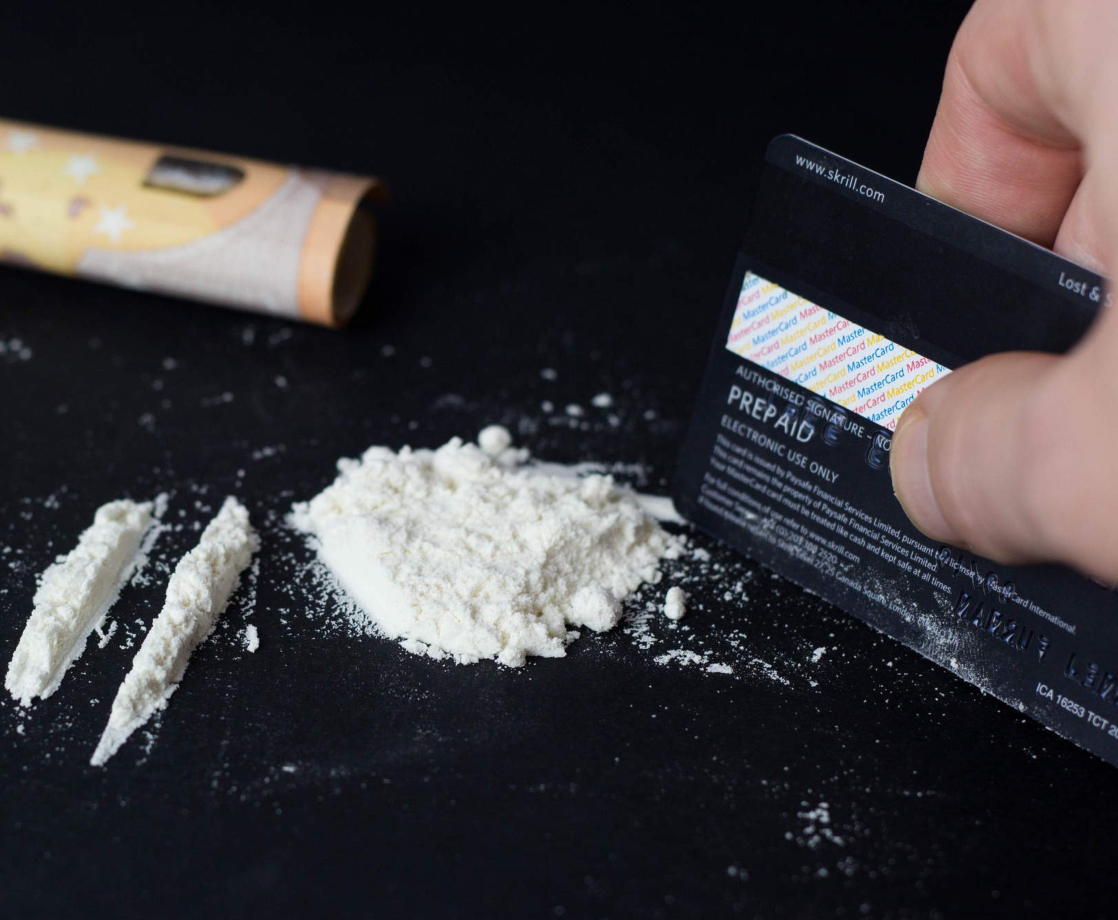Editor’s Note: This article originally published on March 20th, 2020. We have since updated the text to reflect any new developments and changes in the ongoing coronavirus pandemic.
At 6pm on Monday, March 16th, the line of patients waiting to purchase cannabis at a popular Berkeley, California dispensary stretched 40 people deep. Normally, such a sight would be cause for celebration, but in the midst of a global pandemic, the optics were a snapshot of the issues faced by cannabis operators in a time of self-quarantine.
By the following day, the neighboring city of San Francisco would be under a “shelter in place” order, requiring all residents to stay indoors except for certain, “essential” activities. Likewise, businesses were instructed to close, not including vital services like restaurants, pharmacies, and grocery stores. Members of the cannabis industry and advocates alike vociferously protested the exclusion of cannabis as an “essential” service (and thus one which would be allowed to continue modified operations for the duration of the order). Eventually, San Francisco’s Department of Public Health relented, posting to Twitter that cannabis — both medical and recreational — would indeed be covered under the new restrictions.
That was welcome news for companies like Eaze, the most popular cannabis delivery service in the Bay Area, which had resumed operations as of Wednesday morning.
“On behalf of our customers, we thank San Francisco’s leaders for restoring cannabis access in these troubled times,” said Elizabeth Ashford, Senior Director of Corporate Communications for Eaze, in a statement to MERRY JANE. “We ask for people’s patience as delivery drivers do their best to fulfill orders as safely as possible.”
While the phrasing and precautions have varied by municipalities across the United States, the overall sense of the past few days is that cannabis should remain available, either by curbside pick-up or delivery.
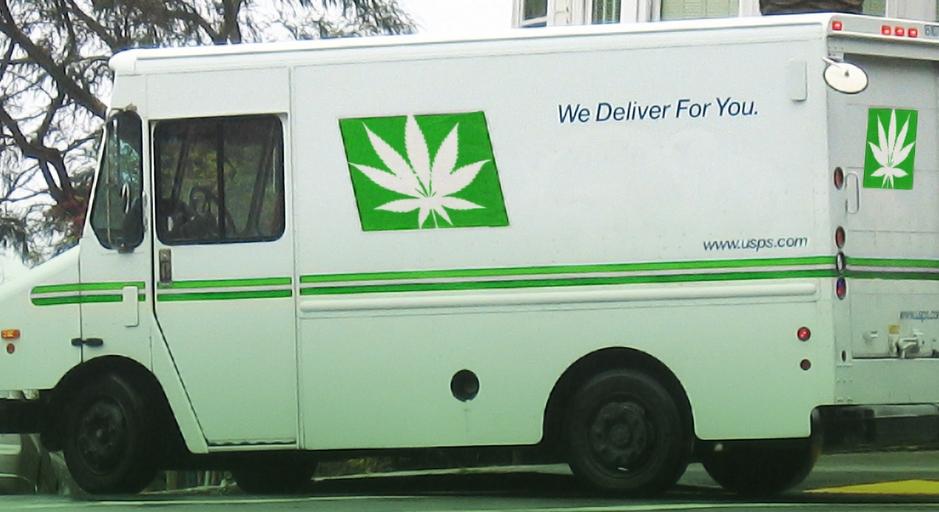
According to data gathered by Jane Technologies, legal cannabis operations across the US have seen revenue increase by 52% to 130% from late January to the present. Jane also reports a 142% increase in the number of new users ordering cannabis online in the past week, compared to a month ago. In recent days, however, published data suggests that the spike has now nosedived into a slump.
For Seed & Smith in Denver, Colorado, the focus so far is on being as hygienic and safe as possible, according to Director of Customer Experience Paul Hartje.
“In the spirit of social distancing,” Hartje explains to MERRY JANE, “we have stopped our facility tours until further notice and are limiting the number of customers permitted inside our waiting room and bud room. We are also adding online ordering capabilities so our customers can pre-purchase and collect products, minimizing wait times and human interaction as much as possible.”
In the Midwest, Illinois decided to allow dispensary pickup for medical patients, a move that Edie Moor, executive director of Chicago NORML, supports.
“Chicago NORML applauds Governor Pritzker’s decision to allow curbside pickup at dispensaries for medical cannabis patients. COVID-19 is particularly dangerous for those individuals with compromised immune systems. But there are many other inhibitors which can make it difficult for patients to venture out. We are hoping that this understanding will lead state and local officials and stakeholders to come to a better realization of the need for home delivery for Illinois patients.”
Things may change at any moment, leaving many legal cannabis operators to rely on best practices and await further instructions. For example, it was announced on March 19th that Colorado will be getting its first medical marijuana delivery service in Boulder this spring, but it’s unclear if the operation will be active in time to provide for people in self-quarantine.
Meanwhile, in Berkeley, California, a surprise announcement on March 26th shuttered all dispensaries (previously permitted to operate during the shutdown as an “essential” service) and instead mandated that all cannabis sales be delivery-only. Within 24 hours, outcry for advocates and business owners had inspired city officials to reverse course.
Without any federal guidance to rely on — a widespread issue at this moment, but one acutely relevant for the legal weed market — the national approach and response to COVID-19 has thus, by necessity, been piecemeal. In hopes of keeping patients informed of how and where to get safe cannabis products in these uncertain times, MERRY JANE created a regional guide to where things currently stand across the country.
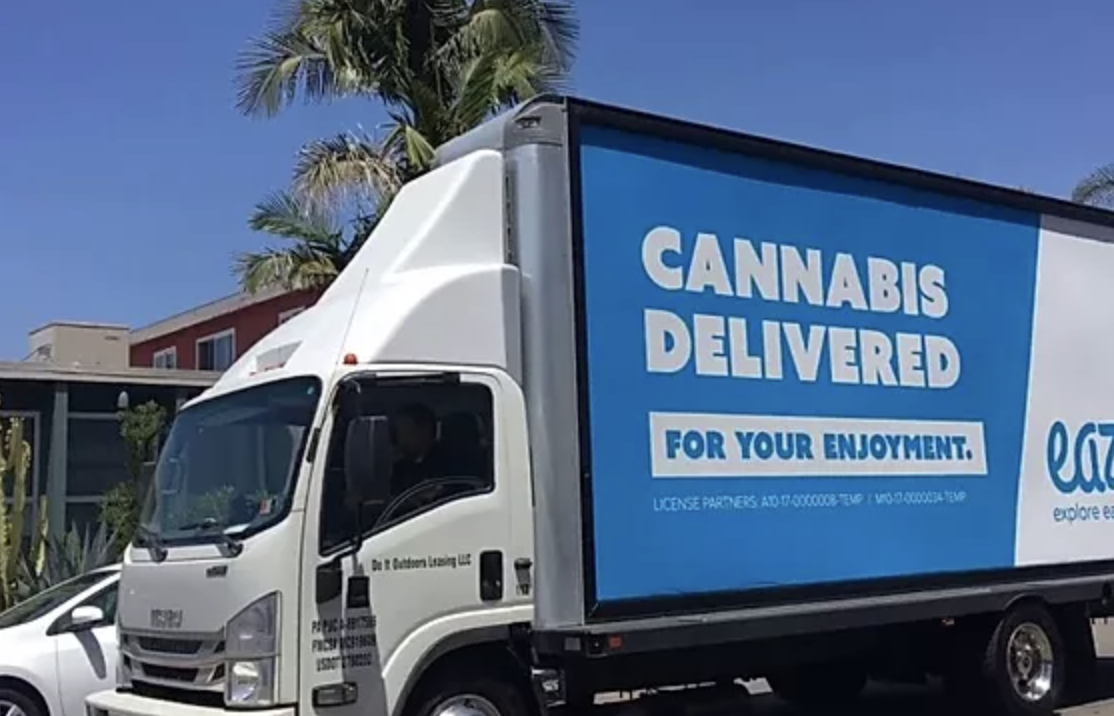
Adult-Use Markets, West Coast
Washington State
On March 17, the Washington State Liquor and Cannabis Board issued a statement confirming that cannabis retailers were not required to close and that rules governing the sales of cannabis outside of designated business areas would be waived to allow for the more sanitary practice of curbside pick-up.
Oregon
As of March 20th, Oregon Governor Kate Brown was scheduled to announce what businesses would be deemed essential in the event that a “shelter in place” order was issued for the state. For now, cannabis operations remain in effect, although not all businesses are opting to stay online. William Quintana, store manager for High Desert Cannabis in Pendleton, Oregon, shared on Twitter that he was closing his dispensary through April 1st, but added that he planned to pay his staff during the closure.
Subsequently, on April 2, it was reported that Oregon will entertain the concept of delivery through a new partnership with Leafly.
California
Despite cannabis being initially omitted from San Francisco’s “essential services” list, dispensaries are now allowed to operate on a modified basis. Similar restrictions are in place for the neighboring counties of Berkeley, Alameda, and Oakland. Meanwhile, Santa Clara appears to be determined to allow cannabis only for qualified medical patients — an extremely complicated position to take considering patients no longer require a card to make purchases in the state. Meanwhile, pot shops in Los Angeles, where no “shelter in place” order has been issued, have seen sales skyrocket.
On April 1, Santa Clara county health officials decreed that recreational cannabis sales would no longer be permitted on-site at dispensaries during the “shelter-in-place” order.
Nevada
On March 18th, an order from Governor Steve Sisolak forced the closure of all “non-essential” businesses. For now, that list does not include cannabis, although KTNV Las Vegas reports that at least one dispensary, The+Source, is currently keeping both of its locations open while the Nevada Dispensary Association works to ensure the inclusion of cannabis on the “essential” list.
On March 20, Gov. Sisolak officially declared that all medical and recreational dispensaries in Nevada would need to close their storefronts, effectively making Nevada a delivery-only state for the time being.
Alaska
It’s business as usual in Alaska, though one of the state’s elected officials did notably downplay the severity of COVID-19 as recently as March 19th.
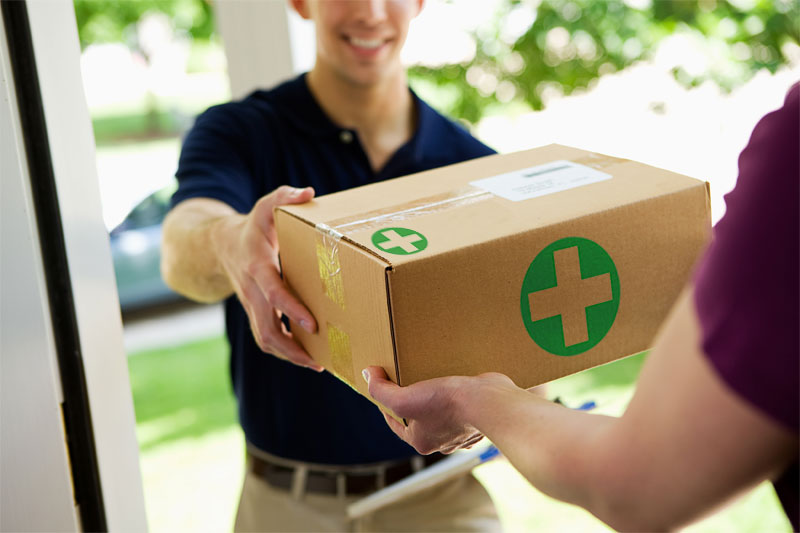
Adult-Use Markets, Midwest
Michigan
On March 16th, Michigan’s Marijuana Regulatory Agency released a statement encouraging both medical patients and recreational customers to use delivery when possible while also temporarily allowing for curbside pickup to take place across the state. Subsquently, Michigan Live reported that cannabis companies petitioned Governor Gretchen Whitmer to classify cannabis as “essential” and to “allow doctors to certify medical marijuana patients over the phone during the COVID-19 outbreak” in the event a “shelter in place” order is issued.
Cannabis was then classified as “essential” in Michigan, as part of the statewide “stay-at-home” order issued by Governor Gretchen Whitmer. At present (April 3rd), delivery and curbside pick-up are both available to Michigan residents.
Illinois
Guidance issued by the Illinois Department of Financial and Professional Regulation on March 17th permits for dispensaries to sell medical cannabis on the sidewalks of their property through the end of the month, though recreational customers are still being instructed to shop indoors for the time being. The Chicago Tribune reports that some stores focused exclusively on recreational sales have already chosen to shutter, including the Uptown neighborhood store Dispensary 33, as well as MOCA Modern Cannabis in Logan Square.
Colorado
COVID-19 appears to be inspiring an avalanche of online sales in Denver, where the six-store dispensary operation Terrapin Care Station saw an 1800% increase in onlines sales on Monday, compared to the same day a week ago. On March 19th, The Denver Post reported that while most dispensaries were being permitted to remain open as an essential service, some, like Organic Alternatives in Fort Collins, “have opted to close to mitigate the spread of coronavirus and COVID-19, the respiratory illness it causes.”
While the state issued its first delivery permit (for medical cannabis only) on March 19th, recreational patients with valid medical issues may have issues accessing the service when it becomes available later this month. That’s because the Colorado Department of Public Health and Environment (CDPHE) prohibits doctors from discussing medical marijuana via telemedicine platforms, meaning prospective patients cannot get MMJ cards from the safety of their homes.

Adult-Use Markets, East Coast
Washington, DC
In Washington, DC, the rules governing legal cannabis are rather unusual. While it is legal to possess and grow weed, it is not legal to buy or sell it. Instead, a barter economy has formed in the absence of any licensed dispensaries. Basically, marijuana is given as a gift upon purchase of a non-cannabis item like a hat, fresh juice, etc. Though pick-up options are sometimes available, the scene consists predominantly of delivery operations, which appear to be continuing for the time being. While an in-store program for qualified medical patients does exist, there does not appear to be a delivery system in place solely for MMJ cardholders.
On March 31st, it was reported that medical dispensaries in the region were experiencing record-breaking sales but simultaneously voicing concern over their inability to deliver to vulnerable patients.
Vermont
In 2018, Vermont passed legislation to legalize the limited possession, use, and cultivation of recreational cannabis but did not offer any provisions for regulated sales or revenue. While Vermont’s Senate now considers S.54 — a bill to regulate and tax cannabis sales — medical patients have access to five dispensaries across the state. If patients cannot visit one of these locations in-person, a designated caregiver may act as a proxy. For now, cannabis access in Vermont appears unaffected by the COVID-19 outbreak.
Massachusetts
On Monday, March 16th, New England Treatment Access — the busiest recreational dispensary in Massachusetts — announced it would be halting sales to the general public in response to concerns over COVID-19. Instead, the operation will cater only to medical patients for the time being, referring to its adult-use sales as “temporarily paused.” As of Wednesday, March 18th, the Boston Globe reported that “most other Massachusetts cannabis retailers are continuing to offer recreational sales while taking a variety of precautions.”
However, on March 27th, Governor Charlie Baker declared that recreational operators would be classified as “non-essential” and thus be forced to close until April 7th (or beyond). Some have protested the decision, while elsewhere in the state, two employees for the marijuana company NETA have contracted COVID-19 and are claiming their employer created an unsafe working environment, which the company denies.
Maine
The state of Maine issued its first round of conditional adult-use cannabis licenses on Monday, March 16th, to 31 businesses in the categories of cultivation, manufacturing, and retail operations. One can only anticipate that the large-scale disruptions presented by COVID-19 will further delay the opening of these operations, which, as of three weeks ago, had already been pushed back to June.
Notable States with Medical Marijuana Programs
Oklahoma
Oklahoma is home to one of the largest MMJ patient populations in the country. As of January 2020, 1 in 13 Oklahoma adults were using legal medical marijuana. MERRY JANE has also documented how the small town of Edmund, OK has more pot dispensaries per capita than Denver. According to The Oklahoman, dispensaries are starting to take precautions in the face of coronavirus.
Oklahoma City’s Stability Cannabis employs a staff of 80 and instructed employees last week to remain home if they were sick or concerned they might be at risk of exposure. As a result, five employees remained home on Thursday and Friday. While MMJ dispensaries in Oklahoma appear to be operating as normal for now, delivery remains unavailable, which is especially painful given the state’s House passed a bill to allow medical marijuana delivery services on February 19. Whether Oklahoma’s Senate will be able to take up the legislation in the age of social distancing remains to be seen.
On April 2nd, Ganjapreneur reported that Oklahoma lawmaker Scott Fegatter is looking to propose and enact broad cannabis legalization in hopes of boosting the state’s budget by as much as $100 million in annual tax revenue.
Pennsylvania
Governor Tom Wolf’s “strong encouragement” for bars to close and restaurants to pivot to takeout/delivery on Saturday, March 14th, did not extend to medical marijuana dispensaries, which fall into the same classification as pharmacies, making them “essential.” The Philadelphia Business Journal recently published a profile on how one store (with four locations), Jushi/Beyond Hello, has weathered the storm so far. Meanwhile, Chris Visco, CEO of TerraVida Holistic Centers, is hoping to gather volunteers to serve as caregivers and to petition the state to permit home deliveries.
On March 20th, the Philadelphia Inquirer reported that the state had “relaxed medical medical marijuana rules, allowing for curbside pickup and de facto home delivery for the first time.”
Florida
While medical marijuana remains available in Florida (a state with a number of grave, extremely worrisome issues right now), the Sarasota Herald-Tribune reports that those without an existing card may have no way to obtain one before Florida’s “stay-at-home” order is lifted.
This story will be updated as developments occur.
Follow Zack Ruskin on Twitter


